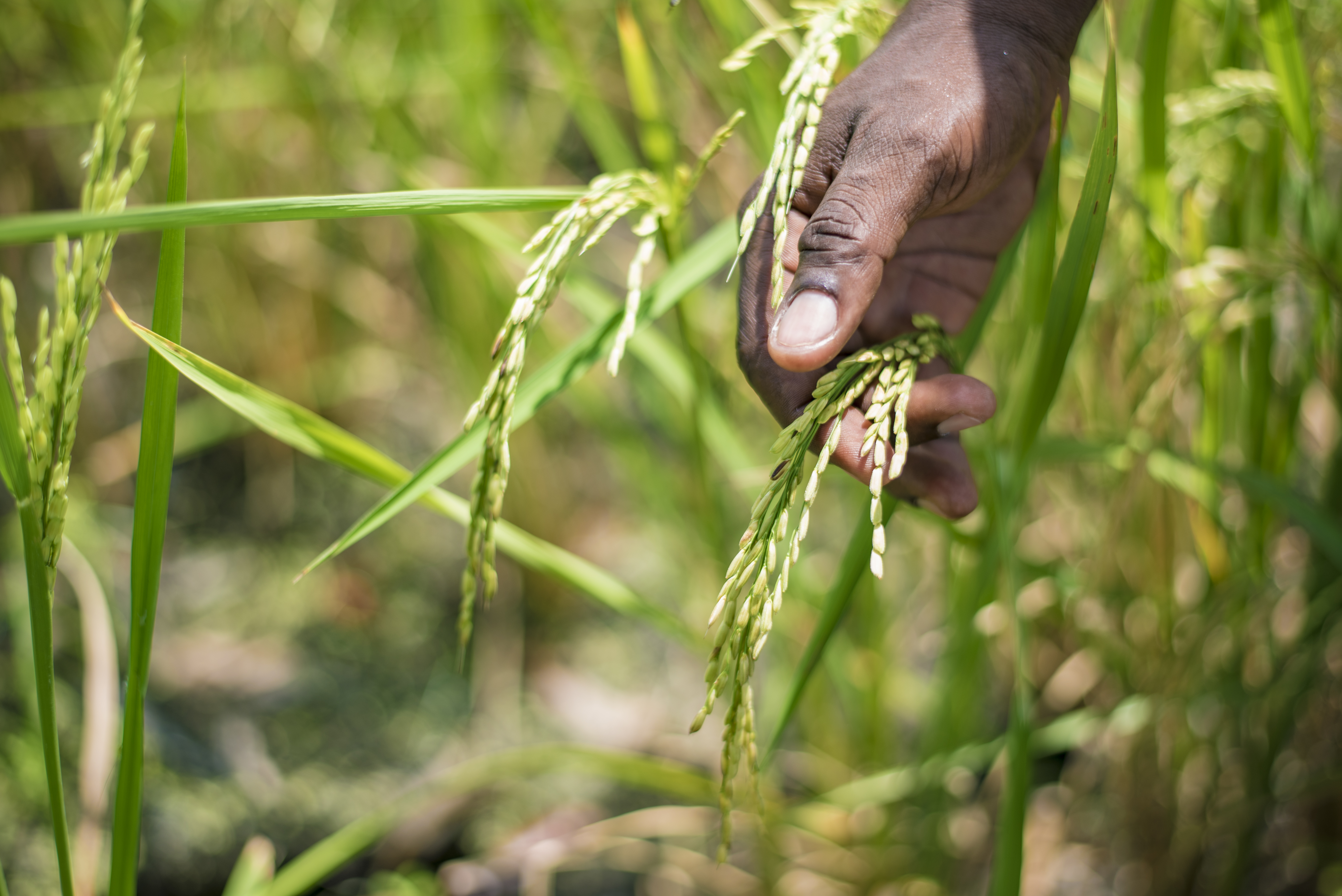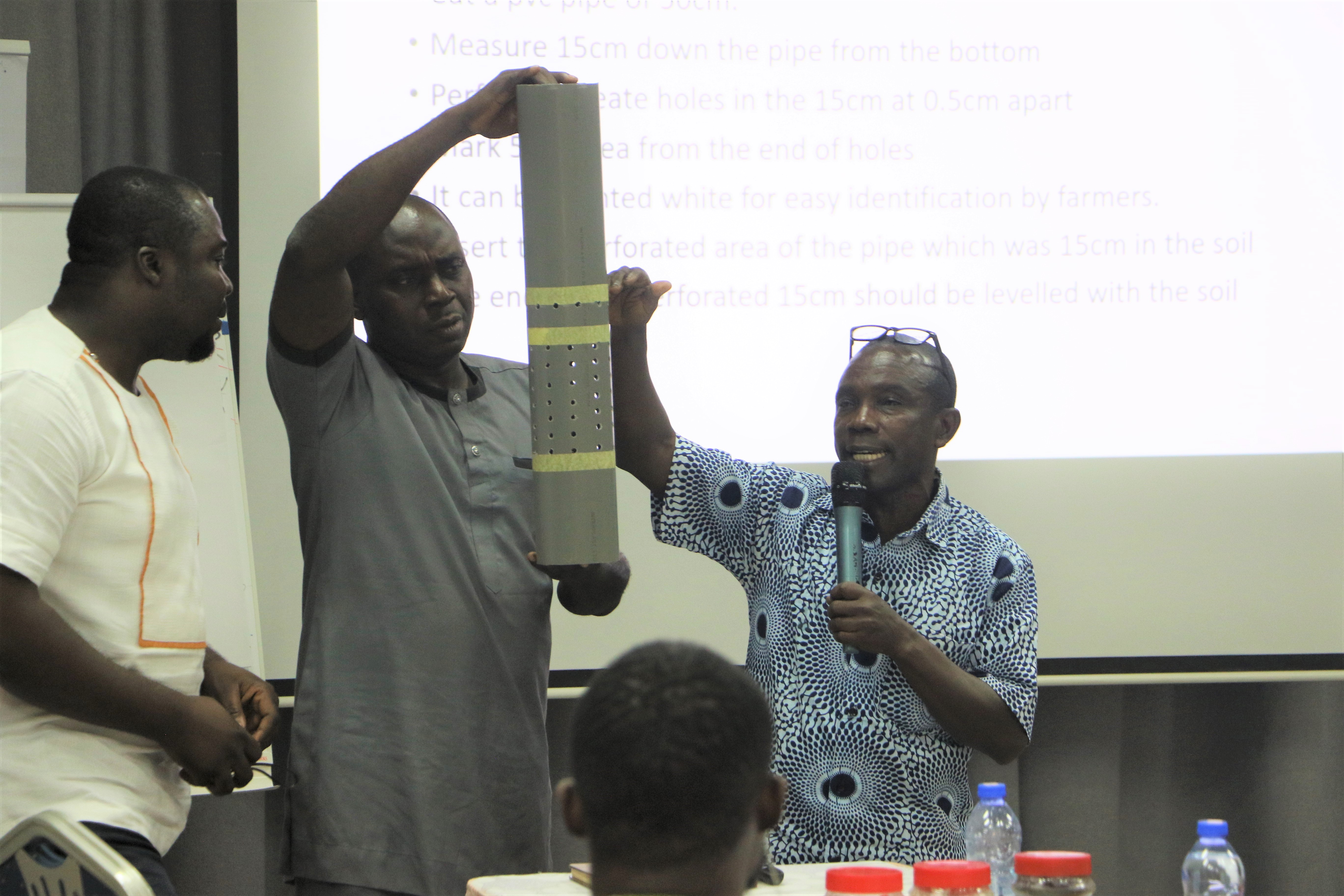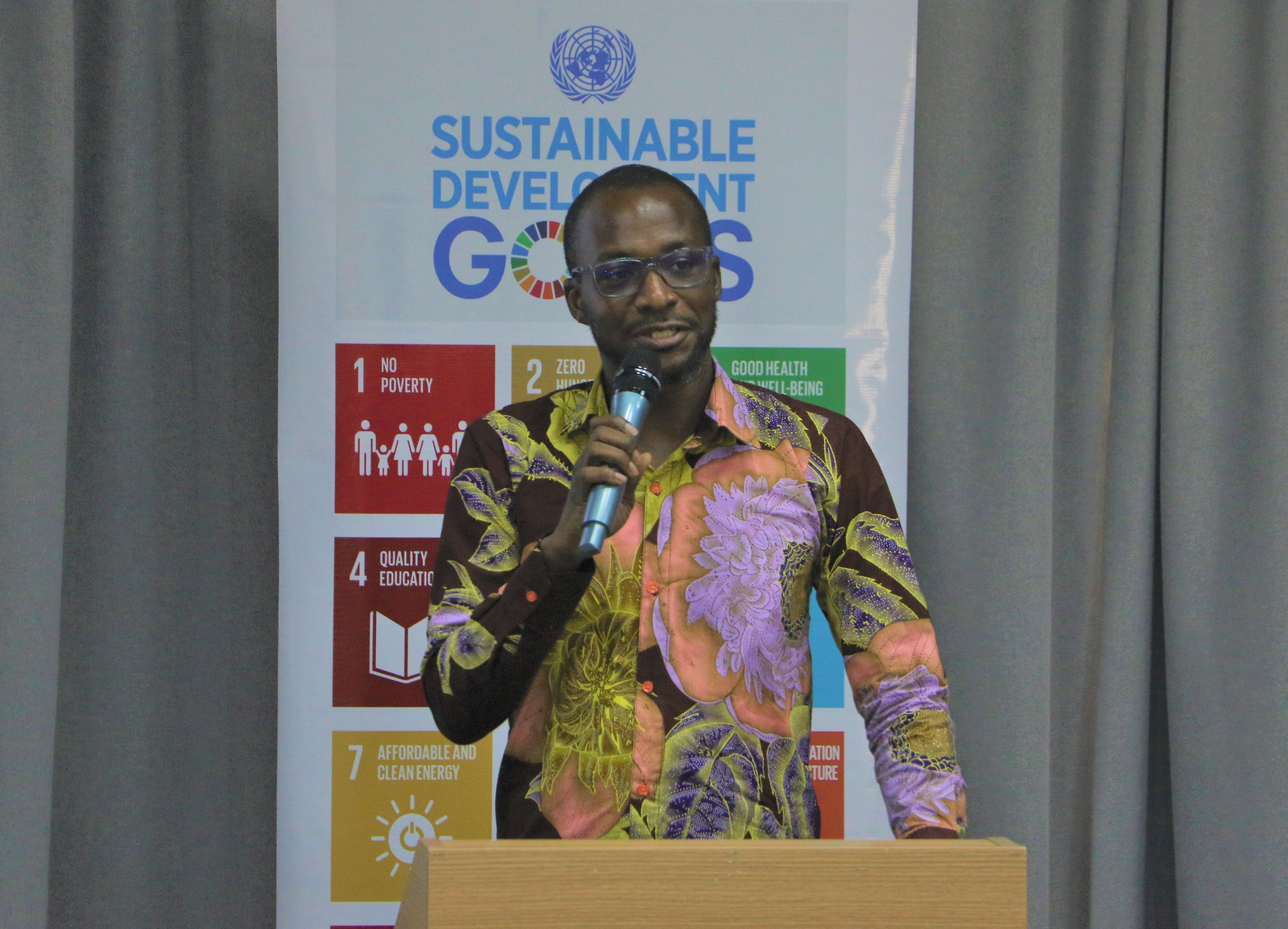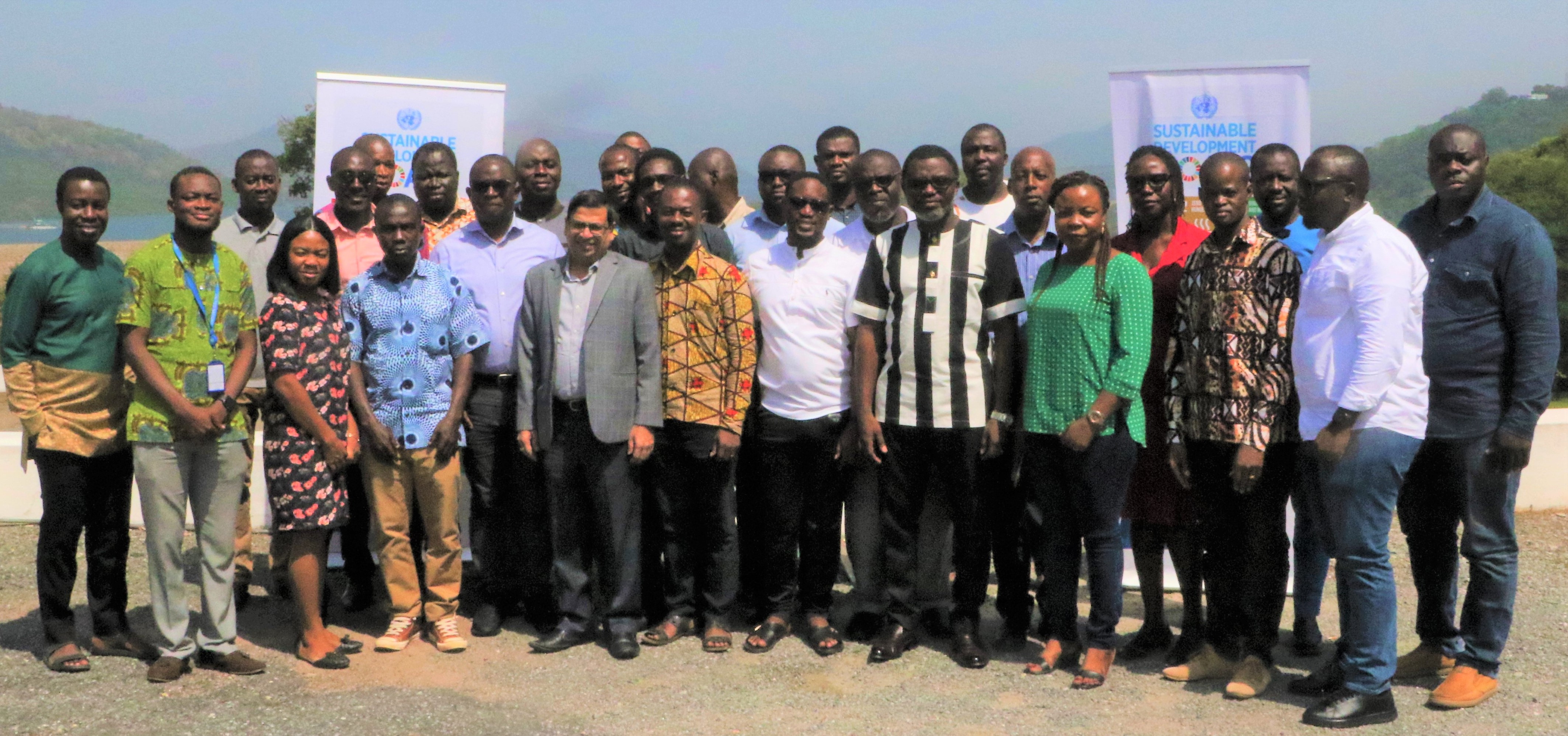Strengthening capacity to protect the environment
December 20, 2022

A rice farm in Ghana
The continuous flooding method of rice farming is a major contributor to climate change due to its high tendency to emit methane into the atmosphere. It is evident that climate change is already having devastating impacts on people, livelihoods, and critical ecosystems across the globe.
The adoption of Alternative Wetting and Drying (AWD) technique, has been identified as effective in reducing methane emissions in rice farming. Evidence shows that through AWD application, rice farmers are able to improve efficiency of water use without reducing their rice yields. AWD has been identified as an effective climate smart measure that does not only mitigate emissions but prepares rice farmers to adapt to a changing climate that affects the availability of water.
The United Nations Development Programme (UNDP) in partnership with the Ministry of Environment, Science, Technology and Innovation (MESTI), and the Environmental Protection Agency (EPA) is building the capacity of Agricultural and Environmental Officers including Irrigation Scheme Managers for the promotion and the adoption of the AWD technology by rice farmers to reduce methane emissions. The training is a key capacity building activity of the “Alternative Wetting and Drying for Sustainable Rice Production” project which was developed out of the cooperative agreement between the Governments of Ghana and Switzerland under Article 6.2 of the Paris Agreement. The agreement falls under a $42 million pay-for-results collaboration between the Swiss Federal Office for the Environment (FOEN) and UNDP.
“We have been learning important lessons on Alternative Wetting and Drying technique of rice farming, and this is effective in preventing excessive water loss and prevention of methane emissions. So, this training provided a platform for us to share such knowledge with frontline agriculture, environmental, and irrigation officers, to enhance their capacity to protect the environment from methane emissions’’, noted Abdul-Razak Saeed, Programme Analyst, Climate Action at UNDP Ghana.
The training, which is the first of many, is designed to improve the knowledge and capacity of Agric Extension Officers, Ghana Irrigation Development Authority and Environmental Protection Agency, all drawn from the Central, Western, Volta, Eastern, Ashanti, Upper East, Upper West, Northern, and Greater Accra Regions of Ghana.
Moses Kodjotse, Field Operations Manager at Astutuare-Kpong at Shai Osudoku District in the Eastern Region described the training as an insightful one that will influence his irrigation techniques.
“A lot has been learnt from this training and from here I am also going to pass on this information to the farmers so that we can become more effective in water efficiency management and be climate conscious”, Mr. Kodjotse noted.
At the training, participants were taken through topics such as overview of Alternate Wetting and Drying (AWD), emissions accounting, environmental impacts of paddy irrigation (flooding), effective use of AWD technique, monitoring, documentation, and verification requirements. They were also encouraged to forge stronger collaborations at the local level to practice efficient water usage and protect the environment for people and the planet.
The project is targeting rice farmers in about 78% of Ghana’s rice production areas to adopt the AWD technology. This is expected to result in an emission reduction target of 1.1 million tCO2e by 2030; provide extra income through carbon revenue to farmers for increased resilience; and promote adoption of water use efficiency practices for rice cultivation. The goal is to advance the attainment of the Sustainable Development Goals (SDGs), especially goal 13 on Climate Action.

The Irrigation Managers being trained to adopt the Alternative Wetting and Drying (AWD) technique.

Abdul-Razak Saeed, Programme Analyst, Climate Action at UNDP Ghana speaking at the training.

Training participants

 Locations
Locations



